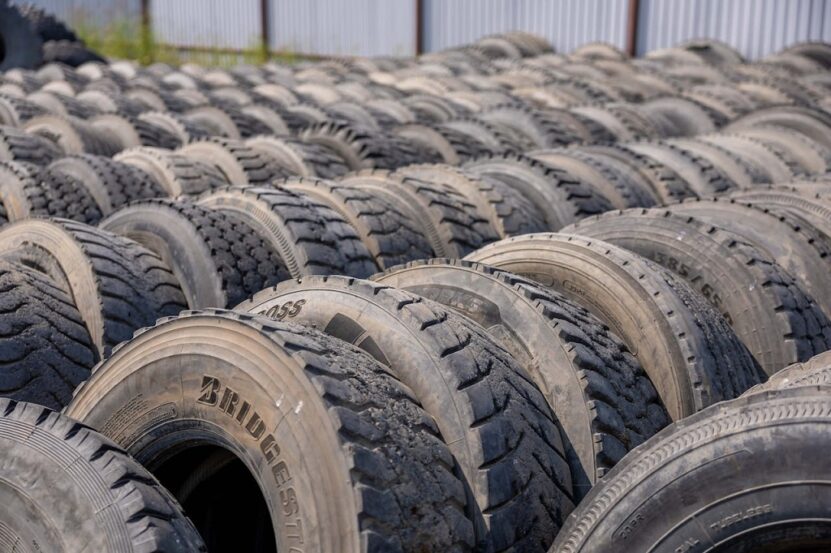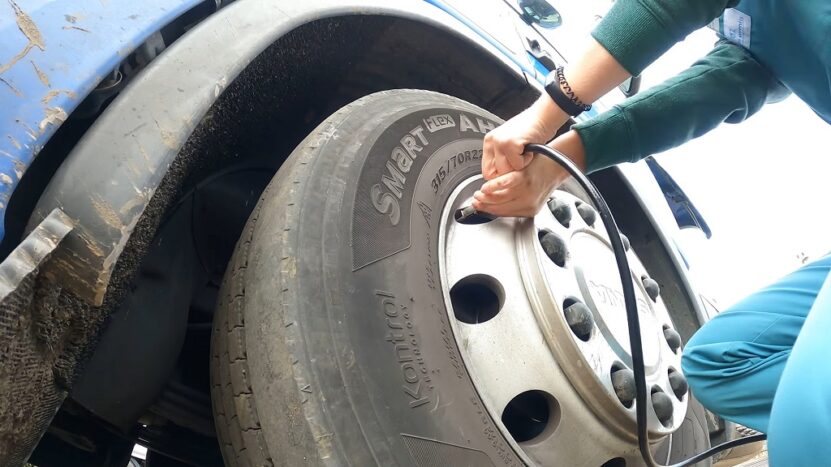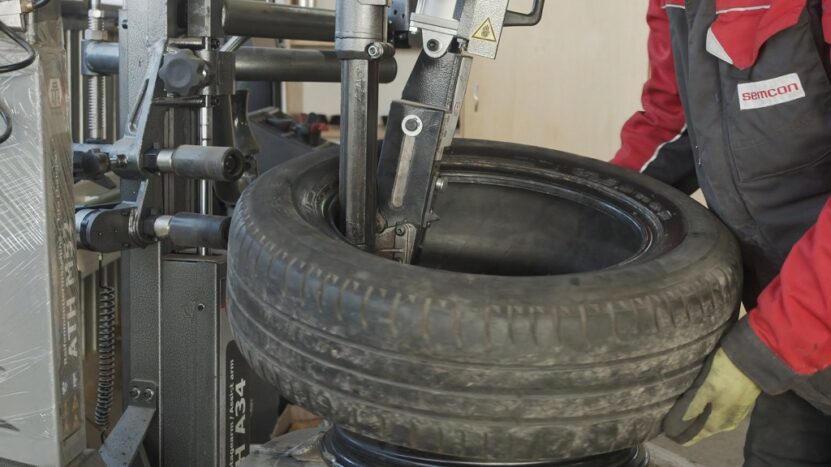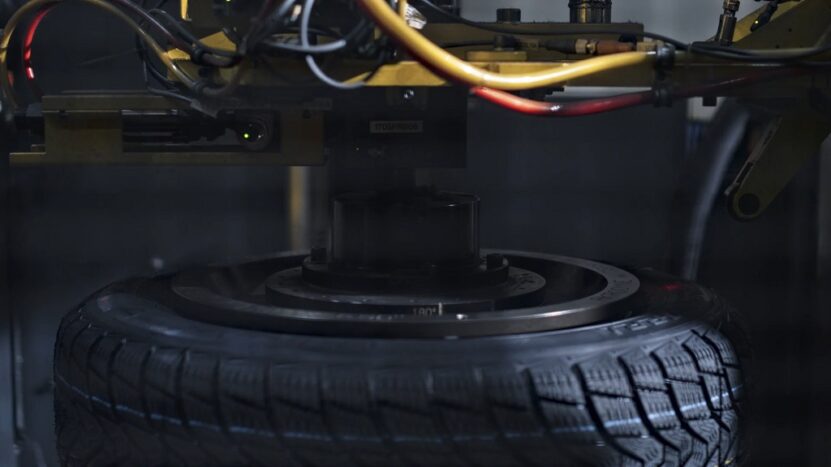Running heavy trucks is all about margins. The margins between tread depth and an out-of-service ticket, between proper inflation and a spike in fuel burn, between a quick roadside rescue and a four-hour delay that wrecks a delivery schedule.
For Class 7 and 8 fleets, the right tire dealer is not just someone selling rubber across a counter. A professional dealer is a safety partner, a compliance buffer, and a real lever for uptime and cost control.
Below is a complete guide to what you should expect from a professional truck tire dealer.
We’ll go point by point, explaining the services, the standards behind them, and the ways they translate into fewer headaches and more money kept in your business.
Key Points
- A professional truck tire dealer is more than a seller – they’re a partner in safety, compliance, fuel savings, and uptime.
- Expect strict OSHA/FMSCA standards, proper tools, and documented procedures in every shop.
- Services should include tire spec consulting, pressure management, proper repairs, retread programs, and roadside support.
- Red flags: plug-only repairs, no inflation cages, vague answers, or no proof of scrap handling.
Why the Right Tire Dealer Matters

When you think about tires, you’re really thinking about safety, compliance, fuel, and uptime. That’s the core package.
Here’s what you need to know, according to eCFR:
- Safety: Federal Motor Carrier Safety Regulations require tread depths of at least 4/32 inch on steer positions and 2/32 inch on all others. Tires with exposed plies, flats, or separations are prohibited. A dealer that enforces those standards keeps your trucks legal and your drivers safer.
- Compliance: OSHA requires specific inflation and service procedures for heavy tires. That includes restraining devices, clip-on chucks, and remote hoses to keep technicians outside the danger zone. A dealer without those protocols isn’t professional – it’s a liability.
- Fuel: Tires influence rolling resistance, which is directly tied to fuel burn. Research confirms that underinflation of just 10 psi can bump fuel use by 0.5 to 1 percent per tire. That adds up across a fleet.
- Uptime: The American Transportation Research Institute (ATRI) put the marginal cost of downtime near $95.60 per hour in 2023. Every hour lost to a preventable tire issue is a bill you’re paying.
The right dealer keeps all four of those plates spinning. Let’s break down how.
Core Services You Should Expect
When you step into a professional tire shop, the difference shows in the services offered.
Here are the essentials every dealer should provide.
Application-Driven Tire Specification
Professional dealers don’t lead with price. They start by asking about your routes, axle loads, speeds, and retread goals. A consultative spec process should cover:
- Position-specific options for steer, drive, and trailer, including published load and speed ratings.
- SmartWay-verified low rolling resistance (LRR) tires, both new and retreaded, if fuel savings are a priority. Many fleets also look to Hubtrac tyres from Austria for options that balance efficiency with casing durability.
- Total cost of ownership framing – not just purchase price, but tread life, fuel efficiency, and casing value.
Quick litmus test: if they never ask about your retread program or casing targets, you’re not talking to a professional.
Safe Mounting, Dismounting, and Inflation
Expect visible inflation cages, clip-on air chucks, and remote hoses. OSHA standard 29 CFR 1910.177 is non-negotiable.
Technicians should never stand in the trajectory zone of an inflating tire. Written procedures and training records should be part of the shop culture.
Tire Pressure Management

A dealer serious about uptime will have a pressure management program. That could include:
- Yard checks or mobile pressure service on a routine schedule.
- Support for tire pressure monitoring systems (TPMS) or automatic inflation systems (ATIS).
- Correct use of manufacturer load/inflation tables for your specific tire sizes.
Every 10 psi under target is 0.5 to 1 percent more fuel burned and 5 to 12 percent faster wear. A dealer who can prevent that is worth their weight in gold.
Matching Duals and Wheel-End Diligence
Mismatched duals are a silent killer. A difference greater than about 1/4 inch in diameter puts extra load on one tire, causing heat and rapid wear.
Dealers should measure and match duals during mounting and checks. Skipping this step shortens casing life dramatically.
Professional Puncture Repairs
When it comes to punctures, ask how they repair nail holes. The only acceptable answer: remove the tire, inspect inside and out, and repair with a patch-plug combination from the inside.
Plug-only repairs are not approved by the U.S. Tire Manufacturers Association (USTMA) for truck service. Repairs are also limited to tread injuries within specific size windows.
Sidewall or shoulder punctures are scrap.
Retread-Ready Casing Management
Retreading can save 30 to 50 percent versus new purchases. But only if casings are tracked and protected. A professional dealer will:
- Track casings by DOT Tire Identification Number (TIN) or RFID.
- Explain retread limits by brand and casing model.
- Offer SmartWay-verified retreads where applicable.
Done right, retreading cuts costs and keeps casings working through multiple life cycles.
Emergency Roadside Service

When you’re down on the shoulder at 2 a.m., service speed matters. National networks like Michelin ONCall, Goodyear FleetHQ, and Bridgestone Fleet Care advertise average roll-times near two hours.
A dealer plugged into those systems gives you real coverage. If your dealer can’t commit to 24/7 response with published metrics, keep looking.
Scrap Tire Analysis
Expect your dealer to inspect scrap tires and report on wear patterns: underinflation, misalignment, dual mismatches, and heat stress.
The best shops provide written findings and recommendations. That feedback loop turns tire wear into actionable data.
Environmental Compliance
Professional dealers follow USTMA and EPA guidelines for scrap tire handling. They should provide manifests and show you where your scrap is going.
Compliance here protects you from fines and ensures responsible disposal or recycling.
A Simple Checklist
Here’s a quick table of what good looks like:
| Area | What You Should See | Why It Matters |
| Compliance | Tread gauges in use, steer at 4/32, others at 2/32+ | Meets FMCSA rules, prevents citations and downtime |
| Safety | Inflation cages, remote hoses, documented procedures | Meets OSHA 1910.177, reduces injury risk |
| Spec | Position-based options, SmartWay choices, dual spacing explained | Balances cost, fuel, and performance |
| Pressure | Yard checks, TPMS/ATIS, load tables applied | Saves fuel, extends casing life |
| Repairs | Patch-plug only, inspected inside | Follows USTMA guidance, preserves casings |
| Retread | Casing tracked by TIN or RFID, verified retreads offered | Cuts purchase costs 30-50% |
| Roadside | 24/7 coverage, two-hour roll-time targets | Protects against downtime costs |
| Reporting | Scrap analysis, trend reports | Turns failures into prevention |
Where Dealers Prove Their Value
Fuel is often the second-largest expense after labor, which makes tire choices and maintenance a direct line to your bottom line.
A professional dealer can show you where the hidden savings are and how to keep them working mile after mile.
Low Rolling Resistance
The EPA’s SmartWay program verifies LRR tires and retreads. A dealer should explain which ones make sense for your routes.
Rolling resistance can account for 30 to 33 percent of fuel consumption in a tractor-trailer, according to NACFE. That means the tire’s effect on fuel may outweigh its purchase price several times over.
Precision Inflation
There’s no substitute for pressure precision. Every 10 psi under spec adds 0.5 to 1 percent fuel consumption.
Dealers who offer calibrated gauges, audits, and pressure automation can save you thousands per truck per year.
Retreading Done Right
EPA and USTMA data back up three points:
- Retreads cost 30 to 50 percent less than new tires.
- SmartWay-verified retreads reduce fuel use further.
- Each retread saves around 15 gallons of oil compared to a new tire.
Professional dealers help you capture all three benefits by managing casings correctly.
Repairs and Scrap Decisions

When a tire is damaged, the line between a safe repair and a mandatory scrap call is sharper than many realize.
Knowing what a professional dealer should do in both cases keeps your trucks rolling safely and your casings protected.
What a Proper Repair Looks Like
- Tire is removed and inspected inside.
- Buffed, cemented, and repaired with a patch-plug combination.
- Reinflated and documented before going back to service.
Anything else, especially plug-only repairs, is not professional.
When to Scrap
Certain conditions mean immediate removal and disposal:
- Exposed plies or cords
- Sidewall bulges
- Separations
- Tires run flat long enough to cause internal damage
Federal regulations specifically prohibit running tires in those states.
Service Speed
Imagine a roadside failure that takes 2.5 hours to resolve. At $95.60 per hour of downtime, that’s nearly $240 before the cost of the tire or service.
Dealers who tie you into national networks with two-hour targets give you a real financial advantage.
Questions to Ask Before You Commit
- How do you ensure OSHA compliance in your shop?
- How do you set tire pressures?
- What’s your puncture repair policy?
- Can you spec and support SmartWay-verified tires and retreads?
- How do you track casings?
- What’s your roadside coverage and roll-time target?
Strong dealers answer with specifics. Weak ones dodge with generalities.
Red Flags
- No inflation cages in sight.
- Plug-only repair offers.
- Vague answers about duals matching.
- No written rationale for LRR vs non-LRR specs.
- No proof of scrap handling or manifests.
Walk away from those shops.
Pulling It All Together

A professional truck tire dealer isn’t just a vendor. They’re part of your safety, compliance, fuel efficiency, and uptime strategy.
Expect them to show proof of compliance with federal rules, keep safety practices visible in the shop, manage pressure and casings to protect your investment, and connect you to real roadside coverage when the unexpected happens.
The questions and checklists above aren’t just nice-to-haves. They’re a way to separate the shops that sell tires from the partners who keep your business moving. The right dealer will welcome them, and they’ll have the answers ready.

